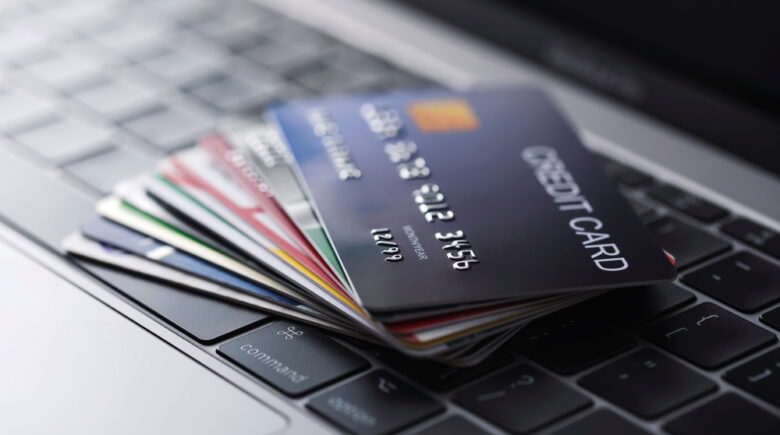Maintaining a good credit score is important to maintain access to the best available loans and financial products. This enables you to borrow money for a car, house, or business. You need a good credit score to get the best loans and financial products. To maintain a good credit score, you need to be aware of what a good credit score is – and what it’s not. A credit score is a number calculated by a third party to determine how good credit history you have. Maintaining a good credit score is important because it affects the amount of money you get from banks, building societies, and other lenders. The main principle of credit scoring is ‘risk-based pricing.’ This means that potential borrowers are initially rated according to the risk they pose to lenders and financial services providers. Here are ways to maintain a good credit score.
Pay your bills on time
Pay as you go cards are not as effective as a monthly direct debit for repaying debts. The main reason for this is that many consumers use these to pay small debts, such as over the minimum payment on a credit card or loan, rather than to repay large debts, like mortgage or rent arrears. This means they do not have a greater impact on your credit score. This will automatically have a negative effect on your credit score. However, suppose you pay your bills in full every month. In that case, your credit report will usually be fairly consistent. Using a payment card where the issuer charges interest means that you are paying more interest than is required, which will also harm your credit score.
Only use your credit cards for approved purchases
You do not want to use a credit card to pay off bad debts, so only use the card for those payments repaid either monthly or by direct debit. If you can’t repay a debt, get out of debt as far as you can but don’t just leave it there – that’s the worst thing you can do for your well-being and credit score. This ensures that your credit score is not affected adversely by the debts.
Take out a loan or credit card only for approved purposes
This should be repaid within a few months at the latest, with the remainder going towards your following month’s bills. You don’t want to use a credit card for this, and it’s often better to use overdraft facilities on your credit cards than on your main account. This can help you keep track of your spending more effectively.
Stay within the agreed limit on your cards and overdraft
By doing so, you will maintain a good credit score and avoid damaging it unnecessarily by overspending and incurring interest charges. You should not spend more than half of what you earn in a month – or less than 20 percent if you are young and starting your economic life, as this may affect your ability to afford to buy that car or house. Doing this will automatically strengthen your credit score.
Don’t open more than one bank account at a time unless you have a good reason
If you do this, it will appear to lenders that you are having difficulties using credit responsibly, and they may refuse to offer you a loan or card in the future. However, suppose several providers have refused you credit. In that case, it sometimes makes sense to open an account with a different bank to be able to access cash for paying bills or other necessities. However, it is important to plan and ensure that your new credit facility is paid off as soon as possible.
Be aware of the different credit scores and what they mean
By doing this, you will understand how your actions affect your credit score, which will help you to make the right decisions for maintaining a good credit score. There are many types of scores used by lenders and financial service providers. Two of the more important types are ‘FICO scores’ and ‘Vantage scores.’ These are the most common ones, and both have strengths and weaknesses.
Your credit score is rated on four main factors, which can be grouped into two categories: credit utilization, which represents how much of your total debt you owe, and payment performance, which focuses on how you pay your debts.
Refrain from taking out an interest-free loan
There is no point in doing this as the interest-free loan is likely to be repaid within two years anyway, which will negatively affect your credit score. Credit cards are used for several different purposes, such as managing expenses, buying gifts, and treating yourself to luxuries. However, there are many instances where it is not wise to use a credit card as it can damage your credit score. As with all things in life, you should ensure that you use credit cards for the right purposes. This will help you to maintain a good credit score.
Don’t use your card to pay off bad debts
If you do this, it will appear to lenders that you are having difficulties using credit responsibly, and they may refuse to offer you a loan or card in the future. However, suppose several providers have refused you credit. In that case, it sometimes makes sense to open an account with a different bank to be able to access cash for paying bills or other necessities. However, it is important to plan and ensure that your new credit card facility is paid off as soon as possible.
Don’t sign up for financial products because of an incentive or discount
If you do this, it will appear to lenders that you are having difficulties using credit responsibly, and they may refuse to offer you a loan or card in the future. However, suppose several providers have refused you credit. In that case, it sometimes makes sense to open an account with a different bank to be able to access cash for paying bills or other necessities. However, it is important to plan and ensure that your new financial product is paid off as soon as possible.
Conclusion
A credit score is a key part of your financial health. It’s an important tool for getting approved for new loans or other lines of credit, with the debt-to-income (DTI) ratio being used as a key component. A high score is reassuring, especially to those who carry credit card debt. However, below-average scores can hurt your chances and make it difficult to improve them. The importance of credit scores varies greatly for individuals and businesses. If you’re a business owner looking to expand your company, a good credit score will help you secure the best deals from lenders.
Maintaining a good credit score is important to maintain access to the best available loans and financial products. This enables you to borrow money for a car, house, or business. You need a good credit score to get the best loans and financial products. To maintain a good credit score, you need to be aware of what a good credit score is – and what it’s not. A credit score is a number calculated by a third party to determine how good credit history you have. Maintaining a good credit score is important because it affects the amount of money you get from banks, building societies, and other lenders. The main principle of credit scoring is ‘risk-based pricing.’ This means that potential borrowers are initially rated according to the risk they pose to lenders and financial services providers. Here are ways to maintain a good credit score.
Pay your bills on time
Pay as you go cards are not as effective as a monthly direct debit for repaying debts. The main reason for this is that many consumers use these to pay small debts, such as over the minimum payment on a credit card or loan, rather than to repay large debts, like mortgage or rent arrears. This means they do not have a greater impact on your credit score. This will automatically have a negative effect on your credit score. However, suppose you pay your bills in full every month. In that case, your credit report will usually be fairly consistent. Using a payment card where the issuer charges interest means that you are paying more interest than is required, which will also harm your credit score.
Only use your credit cards for approved purchases
You do not want to use a credit card to pay off bad debts, so only use the card for those payments repaid either monthly or by direct debit. If you can’t repay a debt, get out of debt as far as you can but don’t just leave it there – that’s the worst thing you can do for your well-being and credit score. This ensures that your credit score is not affected adversely by the debts.
Take out a loan or credit card only for approved purposes
This should be repaid within a few months at the latest, with the remainder going towards your following month’s bills. You don’t want to use a credit card for this, and it’s often better to use overdraft facilities on your credit cards than on your main account. This can help you keep track of your spending more effectively.
Stay within the agreed limit on your cards and overdraft
By doing so, you will maintain a good credit score and avoid damaging it unnecessarily by overspending and incurring interest charges. You should not spend more than half of what you earn in a month – or less than 20 percent if you are young and starting your economic life, as this may affect your ability to afford to buy that car or house. Doing this will automatically strengthen your credit score.
Don’t open more than one bank account at a time unless you have a good reason
If you do this, it will appear to lenders that you are having difficulties using credit responsibly, and they may refuse to offer you a loan or card in the future. However, suppose several providers have refused you credit. In that case, it sometimes makes sense to open an account with a different bank to be able to access cash for paying bills or other necessities. However, it is important to plan and ensure that your new credit facility is paid off as soon as possible.
Be aware of the different credit scores and what they mean
By doing this, you will understand how your actions affect your credit score, which will help you to make the right decisions for maintaining a good credit score. There are many types of scores used by lenders and financial service providers. Two of the more important types are ‘FICO scores’ and ‘Vantage scores.’ These are the most common ones, and both have strengths and weaknesses.
Your credit score is rated on four main factors, which can be grouped into two categories: credit utilization, which represents how much of your total debt you owe, and payment performance, which focuses on how you pay your debts.
Refrain from taking out an interest-free loan
There is no point in doing this as the interest-free loan is likely to be repaid within two years anyway, which will negatively affect your credit score. Credit cards are used for several different purposes, such as managing expenses, buying gifts, and treating yourself to luxuries. However, there are many instances where it is not wise to use a credit card as it can damage your credit score. As with all things in life, you should ensure that you use credit cards for the right purposes. This will help you to maintain a good credit score.
Don’t use your card to pay off bad debts
If you do this, it will appear to lenders that you are having difficulties using credit responsibly, and they may refuse to offer you a loan or card in the future. However, suppose several providers have refused you credit. In that case, it sometimes makes sense to open an account with a different bank to be able to access cash for paying bills or other necessities. However, it is important to plan and ensure that your new credit card facility is paid off as soon as possible.
Don’t sign up for financial products because of an incentive or discount
If you do this, it will appear to lenders that you are having difficulties using credit responsibly, and they may refuse to offer you a loan or card in the future. However, suppose several providers have refused you credit. In that case, it sometimes makes sense to open an account with a different bank to be able to access cash for paying bills or other necessities. However, it is important to plan and ensure that your new financial product is paid off as soon as possible.
Conclusion
A credit score is a key part of your financial health. It’s an important tool for getting approved for new loans or other lines of credit, with the debt-to-income (DTI) ratio being used as a key component. A high score is reassuring, especially to those who carry credit card debt. However, below-average scores can hurt your chances and make it difficult to improve them. The importance of credit scores varies greatly for individuals and businesses. If you’re a business owner looking to expand your company, a good credit score will help you secure the best deals from lenders.



